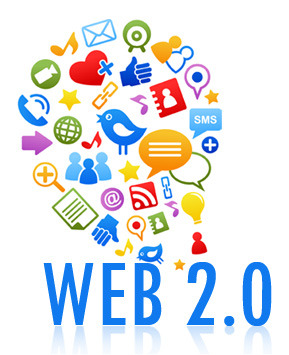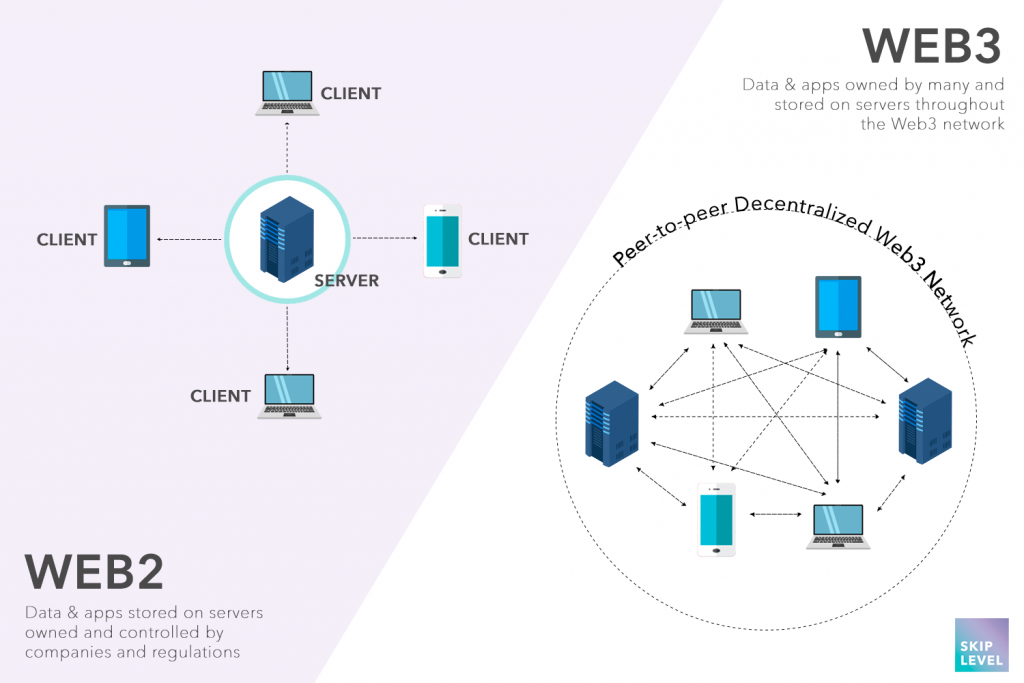What is WEB3? WEB2 vs WEB3
Last updated on June 7th, 2023 in General
 Are you familiar with WEB3? If you’re an avid internet user, chances are you’ve heard of WEB2. But what about its successor? As technology continues to evolve, the concept of a decentralized web has emerged, and it’s called WEB3.
Are you familiar with WEB3? If you’re an avid internet user, chances are you’ve heard of WEB2. But what about its successor? As technology continues to evolve, the concept of a decentralized web has emerged, and it’s called WEB3.
In this blog post, we will explore what exactly WEB3 is and how it differs from its predecessor. We’ll also discuss why understanding the shift towards a more decentralized web is important for our digital future. So buckle up and get ready to learn about the next generation of the internet!
Web3, also known as the decentralized web, is a new version of the internet that aims to fundamentally change how we interact with each other and our digital world. Unlike Web2, which relies on centralized platforms like Facebook and Google to store data and connect users, Web3 uses blockchain technology to create a network of decentralized applications (dApps) that can operate without intermediaries.
This means that no single entity controls or owns your data – you do. With Web3, you have greater control over your online identity and privacy. You can use dApps for everything from social networking to finance to gaming without worrying about censorship or third-party interference.
But Web3 isn’t just about decentralization; it’s also about creating a more open and transparent internet where everyone has equal access to information and resources. By leveraging blockchain technology, developers can build trustless systems that don’t rely on traditional gatekeepers like banks or governments.
WEB3 represents an exciting shift towards a more democratized internet where users have greater autonomy over their digital lives.

Web2, also known as the second generation of the internet, refers to the transition from static web pages to dynamic and interactive web applications. Unlike Web1, which was primarily used for information sharing in a one-way communication style, Web2 brought about social media platforms such as Facebook and Twitter that allowed for two-way communication between users.
With Web2 came advancements in user experience through features such as responsive design and mobile optimization. This meant that websites could adapt to different screen sizes on various devices, making them more accessible on smartphones and tablets.
The rise of cloud computing also marked an important aspect of Web2. It made it easier for businesses to store, manage and access data remotely without having it stored on their physical servers. Additionally, search engines like Google became smarter with their algorithms allowing better content discovery.
Web2 provided a more personalized user experience while catering to the needs of both individuals and organizations alike.

WEB2 and WEB3 are both terms used to describe different stages in the evolution of the internet. While WEB2 refers to the current version of the internet, characterized by social media platforms, online marketplaces, and other similar applications that allow for user-generated content creation and sharing, WEB3 is seen as a more advanced version.
One key difference between WEB2 and WEB3 is their underlying technology stacks. The former relies heavily on centralized servers while the latter uses decentralized systems such as blockchain technology. This means that data on WEB3 platforms is not controlled by any central authority but rather shared among network participants using cryptographic algorithms.
Another major difference between these two versions of the web lies in how they handle user privacy and security. With its reliance on centralized servers, WEB2 has often been criticized for its vulnerability to hacking attacks and for collecting user data without consent. In contrast, with its decentralized architecture, WEB3 offers users greater control over their personal information through secure encryption mechanisms.
While there are several differences between these two versions of the web – ranging from technological infrastructure to privacy concerns – it remains clear that each iteration represents a significant step forward in our collective digital journey towards creating a more democratic and equitable internet experience.
WEB3 is significant because it seeks to decentralize the internet and empower users. It is a new paradigm shift in how we use technology to interact with each other and engage with the digital world. Unlike WEB2, which has centralized control over user data and content, WEB3 enables individuals to own their data and have complete control over what they share online.
One of the primary benefits of WEB3 is that it promotes privacy and security. By utilizing blockchain technology, users can encrypt their data, making it virtually impossible for hackers or other third parties to access sensitive information without permission. Additionally, since there is no central authority governing WEB3 platforms, there are fewer opportunities for censorship or manipulation of content.
Another benefit of WEB3 is its potential to disrupt traditional business models by eliminating intermediaries such as banks or social media companies. Instead, peer-to-peer transactions are facilitated through decentralized applications (dApps), creating a more efficient and equitable system. While it’s different, than for e.g. VPN P2P, the main principle remains the same.
The importance of WEB3 lies in its ability to give power back to individual users while promoting transparency, privacy, security,and efficiency across all aspects of our digital lives.
WEB3 represents a new era of the internet that is decentralized, more secure, and empowers users to take control of their data. Compared to WEB2, which is centralized and controlled by big corporations, WEB3 offers more privacy and user autonomy.
While it’s still in its early stages, WEB3 has the potential to revolutionize how we interact with digital content and each other online. As technology continues to advance rapidly, it’s essential for us to keep up with these changes.
As an SEO expert or content creator looking towards the future of the web industry, now is a great time to start exploring what WEB3 has to offer. By familiarizing yourself with its core principles and technologies like blockchain-based smart contracts and decentralized apps (dApps), you can stay ahead of the curve as this exciting new field continues to evolve.